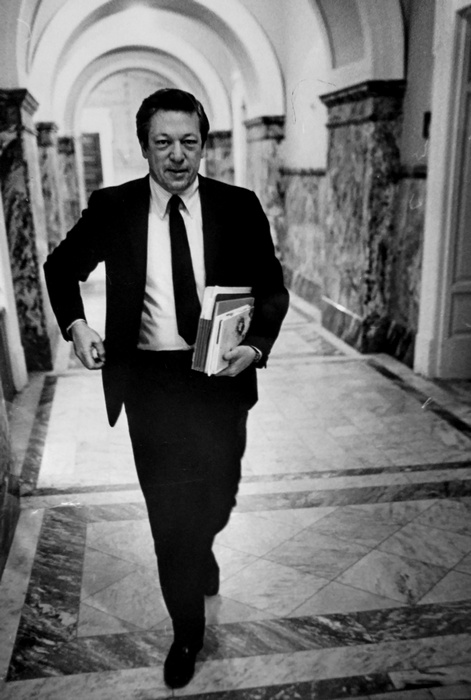Variety in poetry, as in any art, is everything. It is the spice, without which the cooking is glutinous and unpalatable. To repeat one self ad infinitum, as even some extremely talented modern poets do, seems to me like locking oneself up with stale, unpleasant odors in the kitchen. I have always believed, as did John Cocteau, that the artist should find out what he can do and then do something else. The poet should always be venturing, trying out new things. One doesn’t want experimentation for its own sake, the sense of the freakish doctor surrounded by retorts in the laboratory, but one does want the poet who is willing time after time to risk everything and play for the highest stakes. The poet must be constantly exploring, going out on a limb. This does not mean the continual development of wholly new styles. But rather the enlargement and expansion of one’s basic style, It means putting out new shoots, growing as a tree grows up, feeding more and more on light and air.

Photo courtesy of the Library of Congress.
Excerpt from “A Frame for Poetry,” from William Jay Smith’s The Streaks of the Tulip: Selected Criticism, Delacorte Press, 1972.
William Jay Smith (April 22, 1918 - August 18, 2015) served as U.S. Poet Laureate from 1968 to 1970. He was a member of the American Academy of Arts and Letters. Smith published ten books of poems, including The World Below the Window (1998), and Celebration at Dark (1950), a memoir, Army Brat (1980), selected criticism, The Streaks of the Tulip,/em> (1972), a play, and several books of poetry for children. He also translated poetry from French and Spanish to English, including works by Alain Bosquet, Jules Laforgue, and Federico Garcia Lorca. Smith taught at Williams College, Columbia University, and Hollins University.